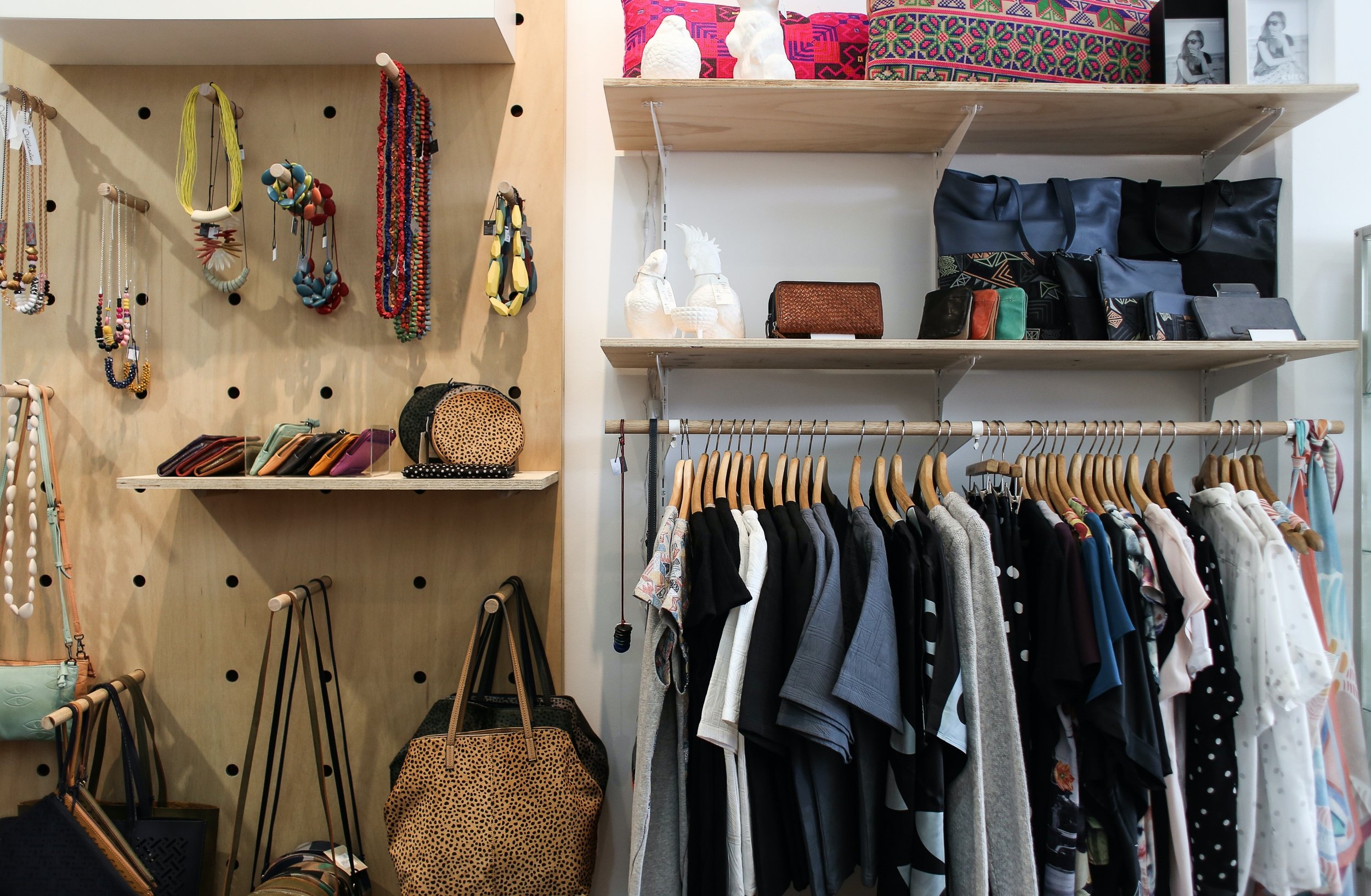Are you tired of feeling confined and suffocated in your small or awkward bedroom?
It's a bummer when your own personal sanctuary starts to feel like it's closing in on you, leaving you yearning for more breathing space. I get it.
Well, fret not! You’re here to overcome these challenges and unlock the hidden potential of your cozy little haven, right? So that’s exactly what we’re going to do!
With a thoughtful approach and some clever choices, you can transform your bedroom into a spacious feeling sanctuary that invites you to relax and unwind.
In this blog, we'll explore 7 practical and easy ways to maximize the perceived space in your bedroom, allowing it to feel more open, inviting, and, ultimately, much larger.
No tricks, no hacks - just sound advice to make your small or awkward bedroom feel bigger. Sound good?
Let’s get into it…
1. Ditch the heavy, solid bed:
One HUGE thing that contributes to a cramped bedroom is a bulky bed frame.
Tan Danh
With a lighter and visually less imposing bed, you can instantly create a more spacious feeling in the room.
Instead of a bulky, solid bedframe, consider sleek, minimal designs or even explore alternatives like platform beds or wall-mounted headboard options.
The key is to choose a bed that doesn't overpower the room but rather harmonizes with the available space, allowing it to breathe.
Tip: If your bed must go in front of a window, for example, get a frame that has a lot of ‘openness’ to it, like a wrought iron bed. The open slats allow the light from the window to pass through.
2. Consolidate dressers:
To make the most of your limited floor area, consolidating your dressers is a savvy move.
Instead of using two separate dressers, go for a single long and low dresser.
Annie Spratt
This not only saves on limited floor space, but it also provides a streamlined look, making the room feel less congested.
By eliminating unnecessary furniture pieces, you create a cleaner, less cluttered look, and that directly translates to a bigger feeling overall.
Curtis Adams
Tip: Kid’s furniture has evolved a lot in recent years. The designs are just as sophisticated as adult furniture, with one significant caveat: they’re smaller scale. That means they’re usually narrower.
Narrow is good because they still typically have the same number of drawers as a larger piece would, but they take up less floor space.
The next time you’re looking for some updated bedroom furniture, take a stroll through the kid’s furniture section with an open mind.
3. Embrace open nightstands or bedside tables:
When it comes to bedside storage, open nightstands or bedside tables are your best allies in creating the illusion of more space.
Curtis Adams
Avoid closed cabinets that can visually weigh down the room.
Open designs, where you can see the wall behind the tables, allow light to flow freely. This is a great way to make your room feel bigger. Closed and bulky nightstands can feel clunky.
Tip: You don’t have to match your nightstands to your bed. Heck, you don’t even have to match the style of the nightstands to your bed…
Instead, find ones that are tall enough to be in line with the top of your mattress.
So, if you’re starting from scratch, buy your bed and mattress first, then invest in the open style bedside tables or nightstands that are in line with your mattress top.
4. Maximize closet space with built-in organizers:
A well-organized closet can work wonders for enhancing the perceived size of your bedroom.
Ron Lach
Invest in built-in organizers that optimize every inch of space within your closet.
These clever solutions allow you to see everything at a glance, eliminating the frustration of rummaging through endless hangers of clothes.
By organizing your clothing and other items efficiently, you create a sense of order that translates into a visually larger and more serene room.
Tip: Make sure to have both hanging clothes storage and shelves as well.
It’s helpful to have two different heights for hanging storage too – tall hanging rods for dresses and pants, lower ones for tops.
Open shelves are great for storing knit tops, bedding, handbags and more.
5. Utilize the back of the closet door and interior:
Don't overlook the often-neglected areas of your closet—the back of the door and interior walls.
Install peg boards, racks, or hooks to take advantage of this valuable space.
Rachel Claire
Use it to hang accessories, scarves, or jewelry, freeing up drawers and shelf space.
By utilizing every nook and cranny, you maximize storage capacity while keeping the bedroom clutter-free.
6. Don't over-accessorize:
In a small or awkward bedroom, it's crucial to strike a balance between personal style and minimalism.
Too many decorative tchotchkes can quickly make the room feel cluttered and overwhelmed.
Manuel Parra
Instead, go for a few carefully selected pieces that add character without overpowering the space.
Remember, less is more when it comes to creating an open and breathable environment.
Tip: The rule of 3 works great in smaller spaces. That means, 3 items grouped together to create a little vignette. Vary the heights and shapes for a more interesting grouping.
Also, try to keep ‘decorative’ things purposeful. For example, perfume bottles, make-up brushes and hairbrushes etc. are great to decorate a small vanity or dresser top. They’re all ‘related’ items that are purposeful and pretty.
7. Keep colors light:
Lighter shades on the walls, bedding, and decor have a remarkable ability to make a room feel more spacious.
Go for soft neutrals, pastels, or cool tones that reflect light and create an airy ambiance.
Christopher Moon
Pale blues, soft grays, or creamy whites can work wonders in opening up your small or awkward bedroom.
Tip: Don’t forget to use mirrors to bounce light around the room. They will enhance the illusion of space.
Priscilla Du Preez
I like to hang mirrors on walls that are perpendicular to the brightest window in the room. This helps to reflect that natural light in a balanced ratio on the ‘darker’ walls.
So, there you have it… Your small or awkward bedroom doesn't have to feel cramped and confined.
From choosing a “lighter” bed frame, to maximizing closet organization, and embracing a minimalist approach, each tip aims to help you create a sense of openness.
Remember, the key is to strike a balance between functionality and aesthetics.
Keep the room clutter-free, utilize smart storage solutions, and maintain an overall light color palette to maximize the perceived size of your bedroom.
With these strategies, you can turn your small or awkward space into a tranquil oasis that feels infinitely more spacious than its actual dimensions.
Read Next:
Small Black And White Bedrooms- Unlocking The Power Of High Contrast Design
Maximize your small black and white bedroom with high contrast design. Discover expert tips on creating a visually stunning and functional space with practical design solutions. Learn how to balance high contrast with lighting, storage, organization, and more for a welcoming and dynamic atmosphere.
Join the Fun!
If you enjoyed this post and you want to keep seeing my weekly blog, the best way to do that is to subscribe.
You can subscribe by downloading my 11 Secrets Only Designers Know to Make Your Space Rock. If you’re curious about how decorators and designers make a home look magazine ready, you’ll love taking a gander at these 11 secrets. You’ll learn how to style your room from the floor up and it will work for ANY space you have.
I write about small space design and decorating, sustainable furniture options, positive self care and a variety of do-it-yourself home décor.
I’d love to connect with you!
“Michael Helwig was top-notch, very professional and responsive to my needs. He allowed me time to explore ideas and try out a variety of combinations until we found the perfect fit. Michael provided detailed information and offered beautiful ideas to make my dream living room become a reality. The furniture he sourced has totally transformed my living room space. Everyone that has seen my new living room has one word, WOW! A special thank you to Michael for a wonderful experience.”
“Michael was very knowledgeable and guided us, with great patience and good humor, through the process of designing our dining room and helping us find the perfect sleeper sofa. He offered really helpful advice when we asked questions - which was often - but at no time did we ever feel pushed. He helped me when I felt like I couldn’t make one more decision. When my new furniture finally arrived I realized everything down to the pillows was perfect. I couldn’t be happier!”
Anna Tarazevich
Michael is Principal designer and blogger at Michael Helwig Interiors in beautiful Buffalo, New York. Since 2011, he’s a space planning expert, offering online interior e-design services for folks living in small homes, or for those with awkward and tricky layouts. He’s a frequent expert contributor to many National media publications and news outlets on topics related to decorating, interior design, diy projects, and more. Michael happily shares his experience to help folks avoid expensive mistakes and decorating disappointments. You can follow him on Pinterest, Instagram and Facebook @interiorsmh.


















